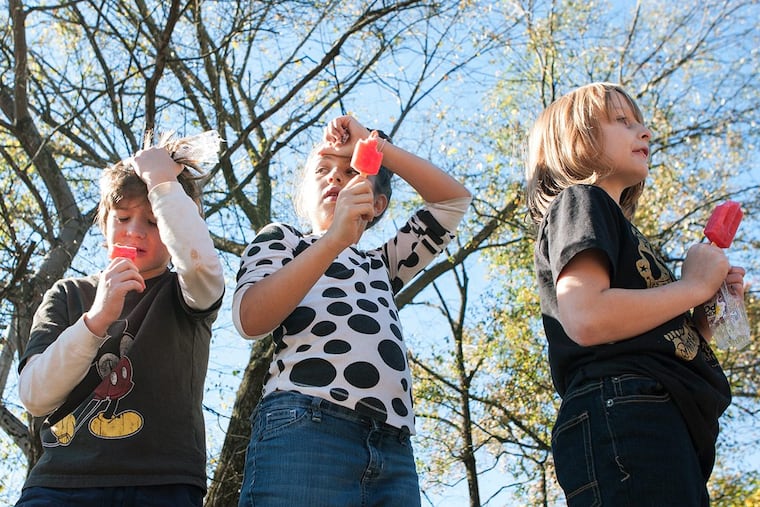The science behind brain freeze and what you can do about them
Keep cold food in the front of your mouth. "The further-back stimulation is what triggers the brain freeze," said Stephanie Vertrees, a neurologist at Texas A&M.

We've all been there.
The day is scorching hot. The drink in front of you is icy cold. You take one big pull on the straw. And then:
Oowwwwww.
Brain freeze. The feeling is real, although your brain isn't really frozen. What you're experiencing is sphenopalatine ganglioneuralgia, or, if you prefer, nerve pain of the sphenopalatine ganglion.
"A brain freeze is what happens when cold food touches a bundle of nerves in the back of the palate," said Stephanie Vertrees, a neurologist at the Texas A&M College of Medicine. "The sphenopalatine ganglion (SPG) is a group of nerves that are sensitive to cold food, and when they're stimulated, they relay information that stimulates a part of the brain to have a headache."
To avoid the feeling completely, "eat cold food much more slowly so that your mouth can warm up the food," said Vertrees. "Keep it in the front of your mouth. The further-back stimulation is what triggers the brain freeze."
If you do get brain freeze, there are some tricks you can try that may help alleviate the pain.
The researchers at Texas A&M suggest pressing your tongue to the roof of your mouth if you feel a brain freeze coming on. The heat of your tongue will warm up the sinuses behind your nose and the ganglion.
Some other cures that have been known to help include drinking a warm beverage or covering your mouth and nose with your hands and breathing quickly to increase the flow of warm air to the palate.
"Brain freezes are not dangerous and very self-limiting," Vertrees said.
But the bunch of nerves associated with brain freeze can also be the source of much more serious head pains.
"This is the same ganglion that is responsible for migraine headaches and cluster headaches," said Vertrees, a headache specialist. "There has been a lot of research done on this bundle of nerves, but mostly for trying to prevent these more serious and longer-lasting headaches."
Migraines and cluster headaches can be debilitating, and they are also notoriously hard to relieve.
"We now have two different kinds of devices for the SPG," said Vertrees. "One device blocks the nerve with a numbing agent, and the other stimulates it electronically with the goal of eliminating or preventing migraine or cluster headaches from occurring."
It's unlikely anyone is going to use those devices to treat a brain freeze, but according to Vertrees, the relationship between these different kinds of headaches can actually help people who get migraine or cluster headaches.
"Many people will try to give themselves brain freeze to try to break a migraine headache," Vertrees said. "It may not work for everyone or work every time, but giving yourself a brain freeze can possibly alleviate a migraine."